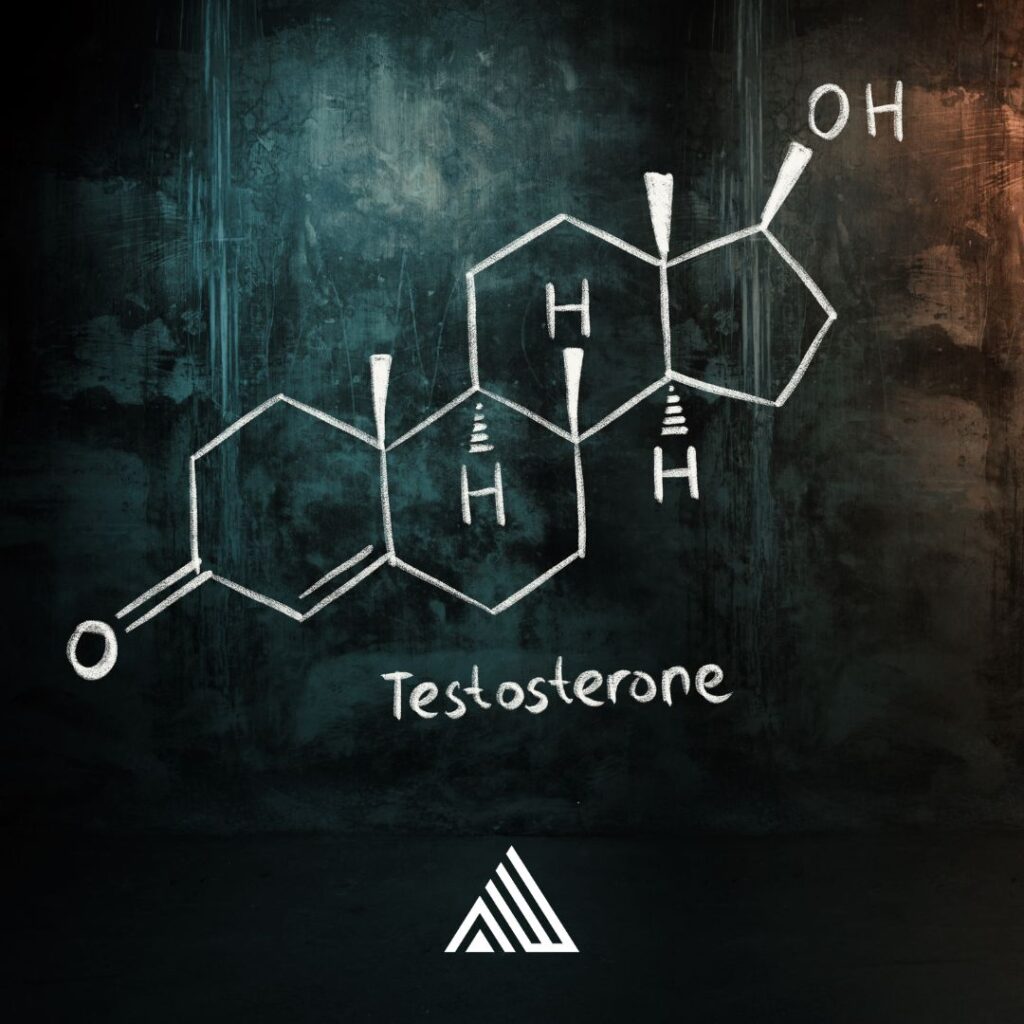Testosterone Replacement Therapy (TRT)
Start your climb with our state of the art hormone optimization program.
Testosterone & Health
Testosterone, often associated with youth and vigor, is a hormone that does far more than fuel the physical attributes of masculinity and fertility. It’s a critical component in a man’s overall health, contributing to bone density, muscle strength, mental clarity, and emotional stability. However, as men age, they often experience a natural decline in testosterone levels, which can affect their quality of life and well-being.
This gradual hormonal shift, commonly starting in a man’s thirties or forties, can lead to various symptoms. Lowered testosterone can manifest in subtle yet impactful ways, affecting mood, energy, physical health, and sexual function. These hormonal changes challenge one’s sense of self and how one engages with the world.
Testosterone Replacement Therapy (TRT) offers a scientific and medical avenue to address these changes. It promises more than just the restoration of lost hormones; it offers a renewed sense of self, a return to the energy and enthusiasm that may have been thought lost to the past. At Apex Wellness, we understand the nuances of this hormonal decline and provide a pathway through TRT that respects the aging process and is tailored to individual needs.

Expert Telehealth Providers
Understanding Testosterone Decline with Age
Testosterone is often glorified as the quintessence of masculinity, from supporting muscle prowess to driving sexual vitality. Yet, its influence extends beyond such singular dimensions, casting a wide net over men’s health. As men age, the gradual decline in testosterone levels can silently unfold, with many failing to notice the subtle cues until more pronounced symptoms emerge.
The Natural Course of Testosterone Levels: Testosterone levels typically reach their zenith in a man’s late teens and early twenties. As the years pass, it’s natural for these levels to begin a slow descent. This decrease is usually gradual, about 1% per year after age 30, but can vary based on individual health factors, lifestyle choices, and genetics. This natural decline doesn’t necessarily mean there is a health problem. Still, when it dips below a certain threshold, an individual may notice differences in how they feel, act, and think in their everyday lives.
Recognizing the Signs: The signs of low testosterone are often mistakenly attributed to the aging process itself. Men may notice a decline in their energy levels, find it harder to increase or maintain muscle mass, or experience changes in sexual function, including a reduced libido. There might also be cognitive effects, such as difficulty concentrating and memory lapses, and emotional repercussions, including irritability and depression.
Impact on Physical Health: The effects of diminishing testosterone can also ripple across various physical domains. Bone density may suffer, increasing the risk of osteoporosis and fractures. There can be a gradual accumulation of body fat, and metabolic rates may slow down, contributing to an increased risk of obesity and associated conditions like type 2 diabetes and cardiovascular disease.
The Broader Health Implications: Low testosterone doesn’t just impact physical health but also has broader implications. It can affect sleep patterns, leading to insomnia or changes in sleep quality. The metabolic consequences of low testosterone can compound, creating a feedback loop that exacerbates the hormone’s decline and affects overall health, creating a challenging cycle to break.
Taking Action: Understanding this decline is crucial for taking proactive steps toward managing health. Knowledge of testosterone’s role and its gradual reduction with age equips men with the power to seek appropriate treatments and lifestyle adjustments. Men experiencing symptoms of low testosterone should consider having their levels checked through simple blood tests offered by healthcare providers like Apex Wellness.
Through this understanding, we pave the way for interventions that can significantly improve quality of life and well-being, making the later years as fulfilling and vibrant as any other life stage.
The Role of TRT in Age Management
Testosterone Replacement Therapy (TRT) is not merely about supplementing a hormone; it’s about reinvigorating the body’s natural rhythms and functions that have been dampened by the inevitable march of time. As men age and their testosterone levels decline, TRT emerges as a pivotal player in the management of age-related hormonal changes.
Restoring Vitality: TRT aims to replenish testosterone to a level that mirrors a more youthful physiological state. By doing so, it helps to alleviate the symptoms commonly associated with low testosterone. Patients often report a resurgence of energy and vitality, a rekindling of sexual desire, and an improvement in mood and mental clarity. It’s about reigniting the spark of youth that seems lost but is, in fact, attainable.
Musculoskeletal Benefits: One of the most significant impacts of TRT is on musculoskeletal health. Testosterone plays a crucial role in maintaining muscle mass and bone density. With its restoration, TRT can help counteract sarcopenia (age-related muscle loss) and bolster bone strength, reducing the risk of osteoporosis and fractures, which are common concerns as men age.
Mental and Emotional Well-being: Testosterone’s influence on the brain is profound. With its levels restored, men often experience improvements in aspects of cognitive function, such as memory and concentration. Furthermore, TRT can be a powerful tool in battling the mental and emotional symptoms that come with low testosterone, like depression and anxiety, enhancing overall quality of life.
Personalized Treatment for Optimal Aging: TRT is not a blanket solution and is most effective when it is part of a personalized, comprehensive approach to health. Apex Wellness understands that each individual’s aging experience is unique, so the initiation and management of TRT must be tailored to each person. Factors such as baseline testosterone levels, symptomatology, lifestyle, and personal health goals are all carefully considered when developing a TRT regimen.
Safety and Efficacy: Management with TRT is a delicate balance. It requires vigilant monitoring to ensure not only the efficacy but also the safety of the treatment. Potential risks are assessed against the benefits, and therapy is adjusted accordingly to maintain the highest standards of patient care.


Expert Telehealth Providers
TRT: Conclusion
Testosterone Replacement Therapy (TRT) at Apex Wellness is a carefully tailored treatment that addresses the natural decline of testosterone with age, restoring not just hormonal levels but also the quality of life. Our TRT program is designed with a deep understanding of the multifaceted roles testosterone plays in maintaining muscle strength, bone density, metabolic function, and mental and emotional health. By personalizing therapy to each individual’s needs, we ensure a safe and effective approach to the natural decline in testosterone, helping men regain vitality and continue to live their fullest life.
Contact Us
Can’t talk right now? No Problem! Fill out the form on our Contact Page, and someone from our office will contact you as soon as possible.
Quick Links
- Home
- Medical Weight Loss
- Hormone Optimization
- Wellness Labs
- ED Treatment
- Nutraceuticals & Supplements
- Blog
- Contact Us

